Special Jan. 20th Edition: Read for your life!
including 2 books I like that are new, and a series of awkward footnotes
You know the song What Are You Doing on New Year’s Eve?
Friends have taken to asking, What Are You Doing on Inauguration Day? Liz even begged us to recommend powerful distractions for her heartfelt misery. I suggested a Korean Spa1 but that wasn’t quite right. Then I found this on Bluesky:2

Are you someone who picked out a “January 20th” book? for real? What is it?3
The Love of a Good Book
Not gonna lie: there’s a lot of recent fantasy & science fiction I just can’t enjoy, even though everyone else seems to love it. Delia & I have been fretting about this a lot. And suddenly, in one of those fabulous twists of fate, the fall of one great fantasy author has sparked a massive interest in another: the work of British Author Tanith Lee (1947-2015), whose work, which we devoured when it came out, has been largely forgotten by the general public.
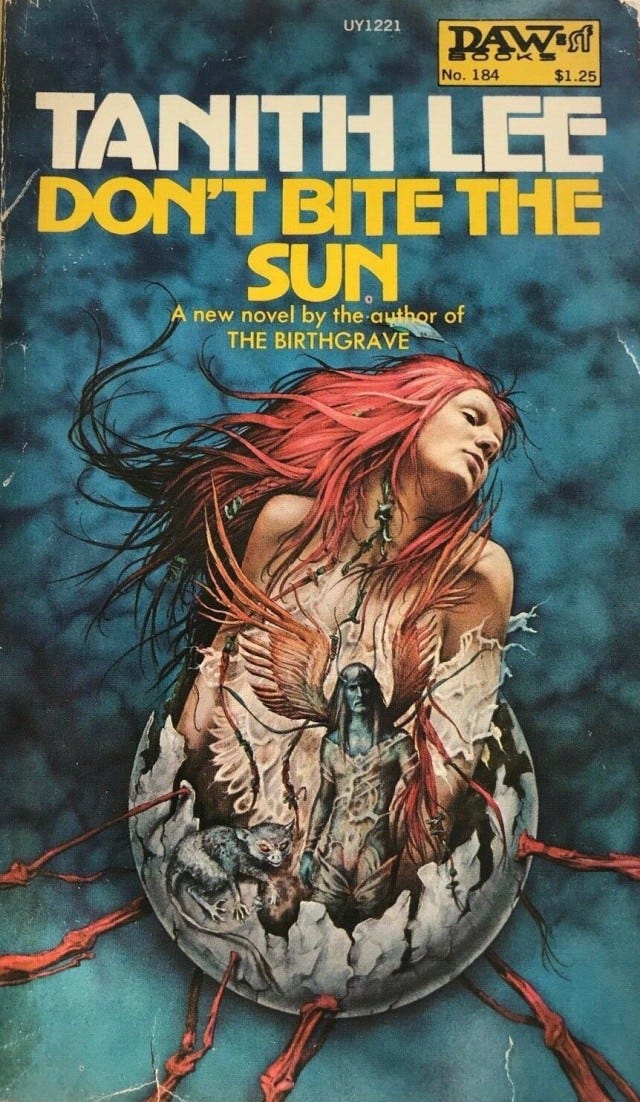
Brilliant & prolific, Tanith Lee created an extraordinary range of cutting-edge fantasy. I read her. I knew her. There was no one like her.
Interest in her work has sparked a lot of talk on social media about important women’s novels from the 1980s & 1990s unknown to today’s readers. Since that was the era when I was editing, reading & publishing at my most fierce (before I got my job in public radio), I rejoice to see this.4 So what’s going on?
This week, novelist Molly Tanzer posted:
I’m happy to see people getting excited over 80s and 90s SFF… but imo it’s because writers used to care about plot over “vibes” and back in the 20th century no one could poison minds by going viral on Twitter declaring nonsense like “conflict is oppressive” or whatever.
[A] colleague pointed out subtext used to be a tool in the writer’s tool kit, but that has also become unfashionable among younger writers (and writers attempting to appeal to the young), because these days writers are more concerned than 18th c novelists giving characters names like Mr. Pride or Miss Nonsense that readers might not understand a bad character is bad and thus become bad themselves.
There are certainly plenty of exceptions - but I feel that the SFF world is going through a big, weird transition right now, and she’s speaking to something real. I feel like readers and therefore editors want us to skip the subtext, and make everything “relatable” (god I hate that word).
So, what to read?
I find myself turning to women writers of the 1930s - 1950s: Dodie Smith, Margery Sharp . . . their mix of irony and kindness is reassuring. But why not try something new? My tastes, after all, are broader than that.
I’ve just finished KILLINGLY by Katharine Beutner (June 2023). And I’m reading a pre-publication) copy of Tessa Gratton’s THE MERCY MAKERS (coming June 2025). They are both real masterworks. Very different from each other, each displays spine-tingling talent, technique and virtuosity.
I do know both authors personally, and I’ll get into that as we go along.
While I’m reading these books, I’m also doing revisions on CITY YEAR, the novel my agent has already accepted - but recently I re-read the ms. & decided the pacing at the beginning needs work. Reading completed masterworks by these two women is (1) Making me feel bad about my own deficiencies; (2) Giving me some good tips on how to do what they do; (3) Spurring me on to higher achievements, as good books always do.5 It also helps to remind myself that these are completed masterworks: they’ve been through the editing process. Katherine Beutner’s Afterword points out how very long it took her to write this one, which is just the dollop of schadenfreude I need right now.
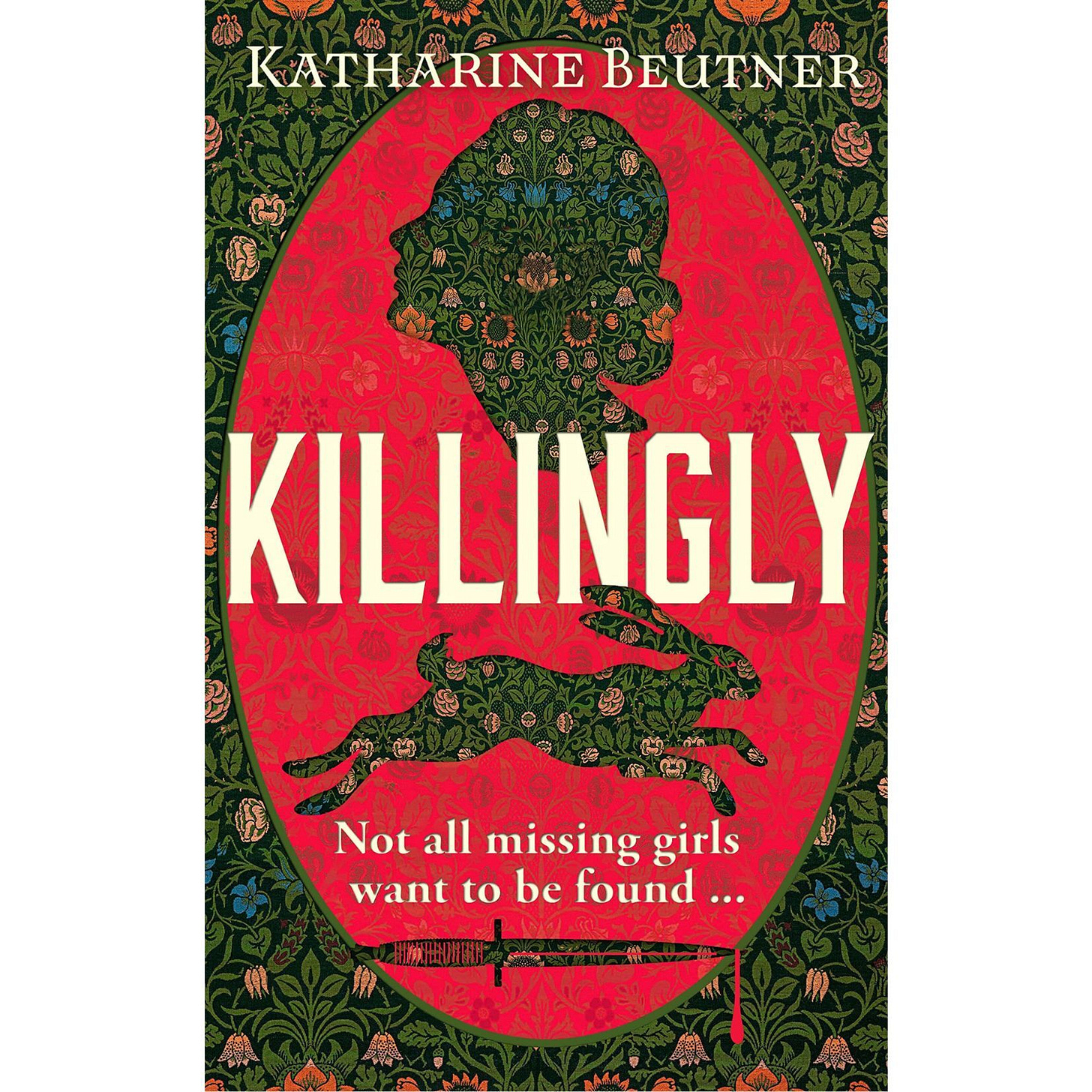
Kate Beutner was on a fellowship at VCCA this summer while my wife Delia & I were teaching in Roanoke, not too far away. We met up for dinner, and she gave us this copy of the book she’d been working on while she & Delia were together at the Sycamore Hill Writers’ Workshop.
It’s not SFF, it’s a historical novel - which, for me, often holds the same appeal: a sense of being Elsewhere - and, oddly enough, a more interesting use of language. One of the things I miss about the fantasy novels I grew up with, and the ones written before Fantasy became a highly marketable genre, was that the language of their narration was refined: function following form, maybe. It wasn’t just there to move the story along. The EVENTS were never considered more interesting than the way they were told.
In the novel, Beutner invents the solution to a real-life unsolved mystery: in 1897, a student disappeared from Mt Holyoke, an early women’s college in Massachusetts, and was never seen again. Conveniently, Killingly really is the name of the New England mill town that the girl, Bertha Melish, was from.
The narrative is from the point of view of three different characters, one of whom, the missing Bertha’s best friend at school, is clearly hiding something from both the seekers and the reader. Beutner teases the relevant information out from chapter to chapter with admirable skill. But I’m not flipping pages just to solve the mystery. The Sense of Place (and Time) is rich in this one. Without a lot of physical description, somehow Beutner makes me feel I am standing in each room where a scene takes place. I think she adds just the right physical details - often it’s a small as a button hook being place on a dresser top6. Or the fall of light. All readers are partners with their authors; maybe because I attended another such college, I’m evoking some of my own experience; but the chill of a train platform late at night, a noisy Boston street. . . They’re very much there for me. And her rendition of 1890s college girl slang - and emotions - is impeccable. They are not the same as ours; she honors this rather than trying to make them falsely relatable.
Beutner is taking the opportunity to write about American women’s lives then, now, and in between. I’ve been talking here about technique more than content, but I can promise you you won’t feel under-served there.
Tessa Gratton: THE MERCY MAKERS
I’m not finished with this one yet, but getting me to write about books is like pulling teeth - and I want to talk about the excellences of Tessa in general, which are all on proud display in her latest
In 2015, I was looking for writers to join our team for Season 2 of Tremontaine, the ::deep breath:: collaborative online serial prequel to my novel Swordspoint.7 They needed to be writers I respected who already knew and loved the Riverside novels.
Enter Tessa Gratton. Who can basically do anything. She’s written teen adventure romances about the Norse gods. She’s done Sapphic re-tellings of Shakespeare plays. Her writing somehow manages to be both lush and tight. Her characters are strange and original, sexy and intriguing. Her worldbuilding is amazingly detailed and precise. She can write the hell out of a swordfight . . . And she can plot rings around me!8
I opened The Mercy Makers during my “I must completely rewrite the opening of CITY YEAR” week upstate, read the first few pages, and WANTED TO DIE. Tessa spends just enough time establishing the Normal (something I always tell my students to do) before blowing it up so effectively that you’re scrolling breathlessly - while being given huge amounts of information about this Other World, its complex social and magic systems - I can’t believe it didn’t take her decades of research just to figure all that out.
Did I mention Tessa can do anything?9
I also warmly recommend her essay, Horns, Feathers, and Scales: Reclaiming Genderqueer Monstrousness.
At the top of this letter, I touched on the revival of some of the great women fantasists of my own past. I hope this decade is remembered for Tessa Gratton, among others. 10
And that’s a good place to stop.
May we all make it through the rest of January with good books and good people around us.
Your pal,
Ellen
In the NYC area, there are great Korean spas in Queens & NJ: huge buildings full of every schvitz imaginable, plus lounges to sleep it all off, and tasty snacks as well! Time absolutely disappears in there.
Find me on Bluesky: https://bsky.app/profile/ellenkushner.bsky.social
@ellenkushner.bsky.social
Liz asked if I had a book picked out. But I’m made of sterner stuff - which is to say, I’m relying on my natural ability to get caught up in a series of unrelated tasks & sudden impulses to distract me all day. After that . . . we’ll see.
Of course, there were plenty of bad books then! AND a cadre of great male authors from the same period now missing from most readers’ radar: Roger Zelazny, for instance. I think whether you’re read or not these days has a lot to do with whether you’re (a) still alive & (b) still producing.
I do not fully understand people who say, “I read a book that was so much better than I could ever write, and now I’m soooo depressed!” I get depressed when I read a BAD book, because How in god’s name did something like that get published, in which case why am I even bothering to create something beautiful? But that’s just me. No judgement.
I am making that up - I’m not sure button hooks are ever mentioned, and I’m racing to get this finished before sundown…. But you know what I mean. An evocative physical item of the period.
Right now, the four Seasons of Tremontaine exist as an audio series (narrated by wonderful actors!), and the 13 stories of Season 1 exist in print in a single volume. We’re working on making the e-versions availble again, and on broader distribution of the audio.
Tessa’s contributions to Tremontaine included a hot male couple of murderous Riverside thieves, the non-binary antiques dealer & possible wizard The Salamander . . . and she created an elaborate, romantic & heartbreaking backstory about the youth of a lesser Swordspoint character, Vincent Applethorpe.
It is also written in the present tense. I hate the present tense. But know what? I didn’t even notice until I was about 100 pages in.
The Mercy Makers is coming in June 2025. You can probably pre-order now, which helps a book in advance.


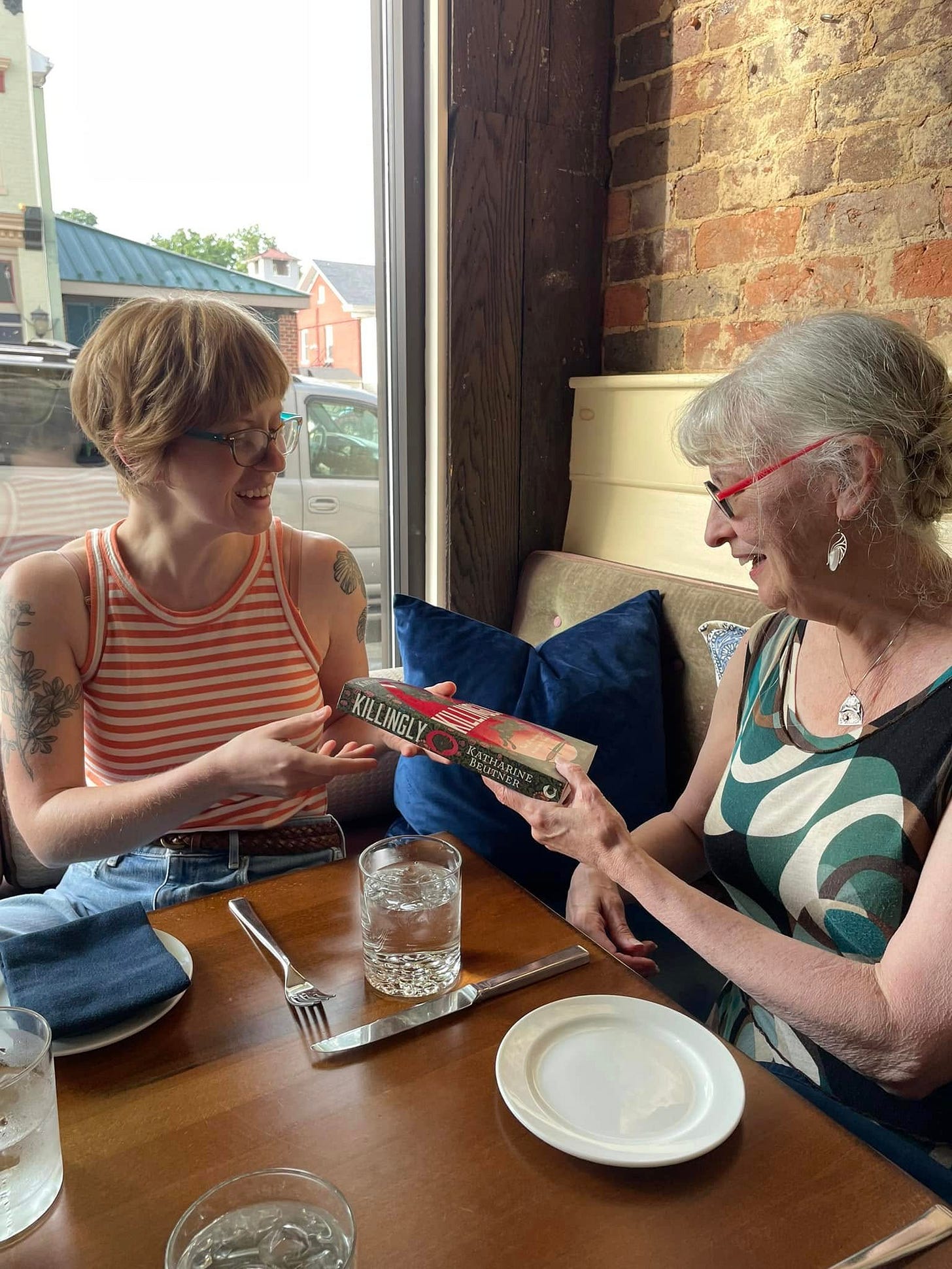
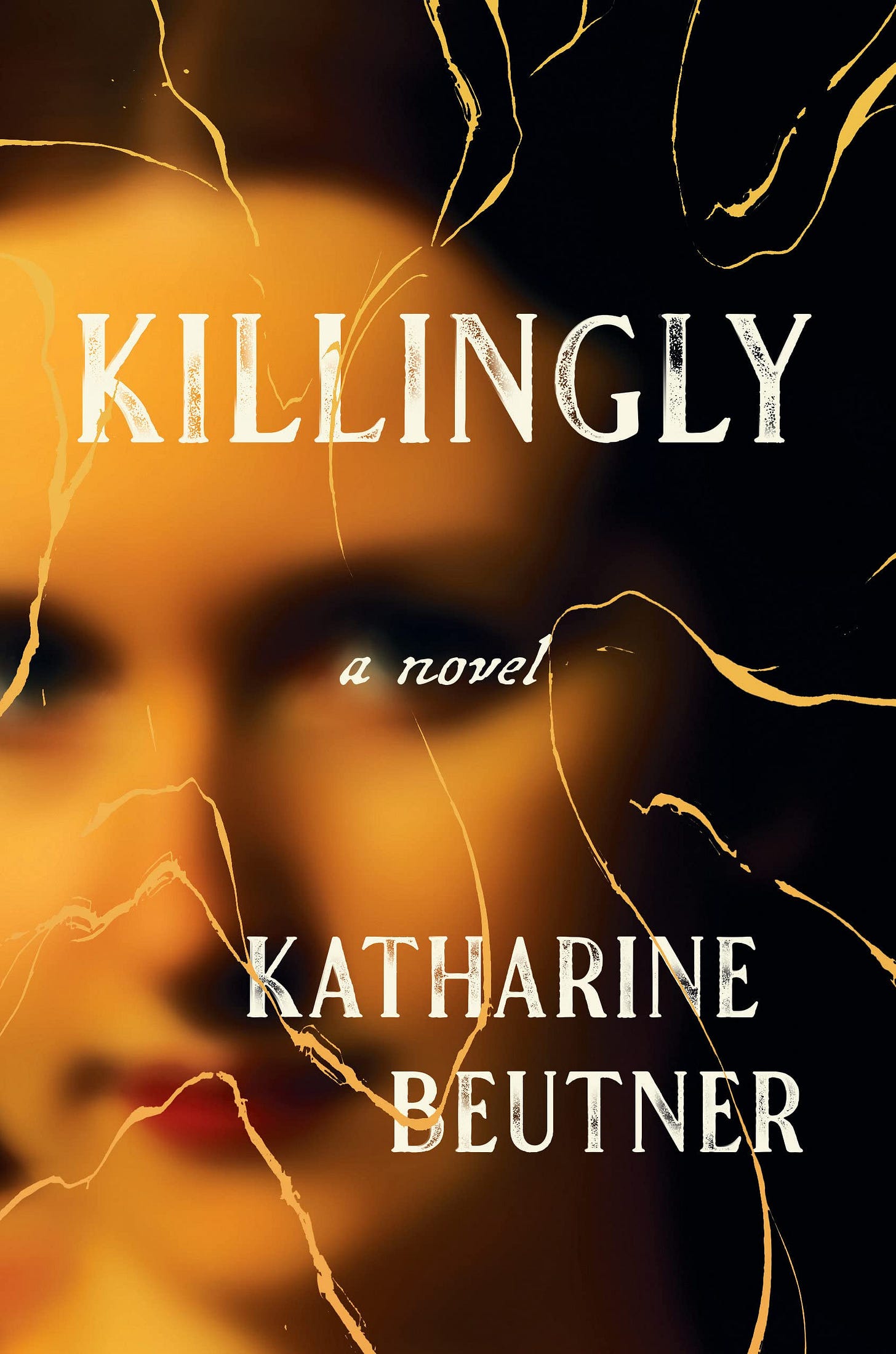
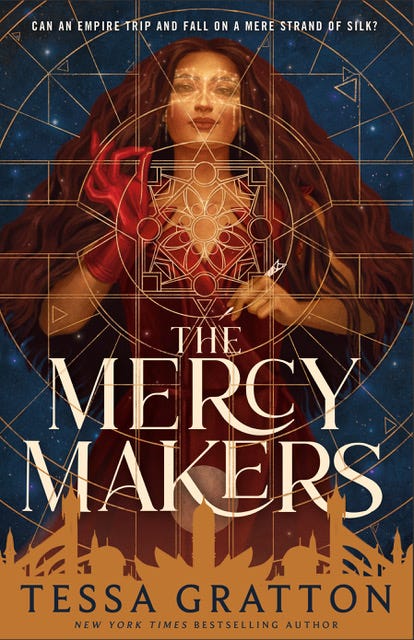
Long and Tangential: I read everything, including the footnotes, being inclined toward footnotes myself. (I sometimes have difficulty as lector, with Isaiah or Wisdom or even Paul to the Corinthians, not stopping to give footnotes to the congregation. No, Jim. Deliver the text as written.)
Regarding footnote 4, I'm dismayed that Zelazny may be forgotten or being forgotten. Set aside his later Amber books when he was writing in haste because he had incurable cancer and wanted financial stability for his family.
Lord of Light is an exquisite novel. Several times I've sat down to read just to understand how he does the frame and I look up and I'm 120 pages in. "The Game of Blood and Dust" is on of the most exquisite short-shorts I've ever read. In general, I think Zelazny may be a better short story writer than novelist, though I'd consider which body parts I could spare if the trade would get me a book like LoL or the first volume of Amber.
Contrary to all conventional writing advice, Zelazny said that in every novel he left out one important scene and included one extraneous scene, such as buying a present for a child's birthday party. I think this contributes to the three dimensional feel of his stories.
I'd read his prose for many years before I came to understand that part of its effectiveness is a poetic sensibility, something I think he shared with Mary Renault, another of my favorite writers.
As a change of pace, I'd recommend the novels of Alan Furst, set in pre-war and WW II France and surrounds. A lovely gloss is that one scene in every novel takes place at the same banquette in a Parisian restaurant. I think/hope you might like his renderings of the Seventh Arrondisement an Elsewhere in an Elsewhen. I would start with Night Soldiers if you decide to sample.
End Tangential Digression
Falling in love with Lee all over again is a gift of 2025 for me. I read several when I was younger & now, they are resonating differently for me. Love how books change as we, the reader, do.